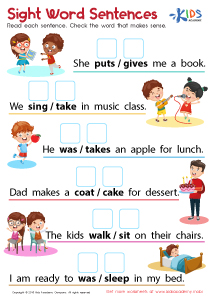Extra Challenge Reading Non-Fiction Worksheets for Ages 3-6
5 filtered results
-
From - To
Introduce your 3-6 year olds to the exciting world of factual texts with our Extra Challenge Reading Non-Fiction Worksheets. These engaging worksheets captivate young minds through age-appropriate topics and fascinating real-world information. Charming illustrations and simple, structured exercises stimulate curiosity, build foundational reading skills, and develop comprehension abilities. Perfectly balanced to provide just the right level of challenge, our worksheets make reading non-fiction an enjoyable experience even for early learners. Enhance your child's literacy journey and prepare them for future academic success with Kids Academy’s expertly crafted non-fiction activities. Unlock a world of knowledge and fun today!
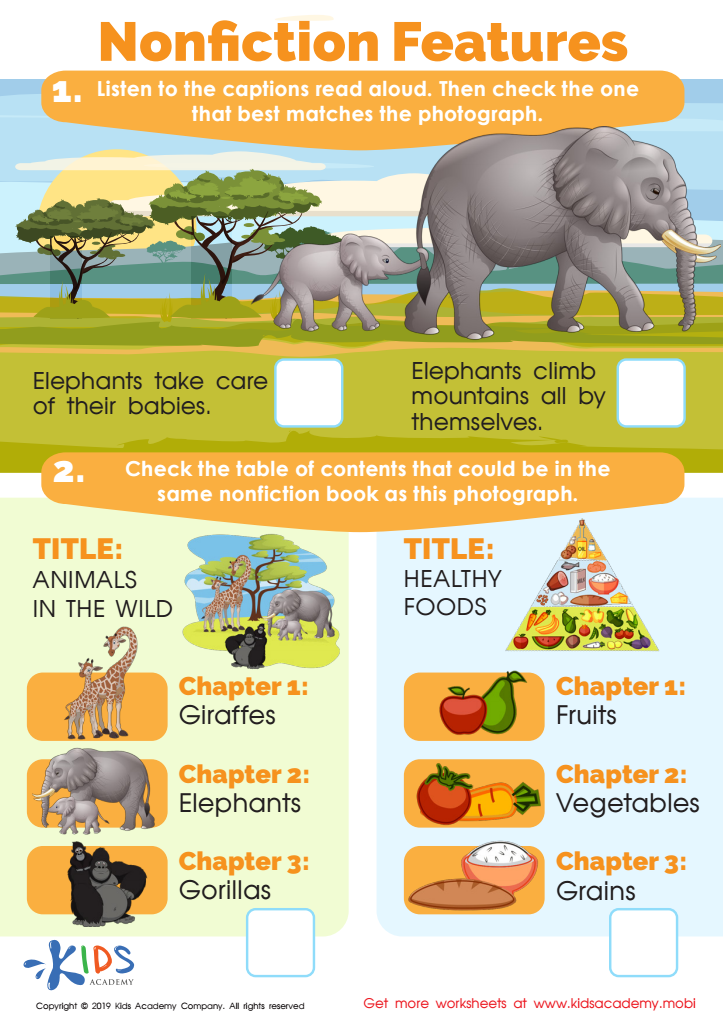

Nonfiction Features Worksheet
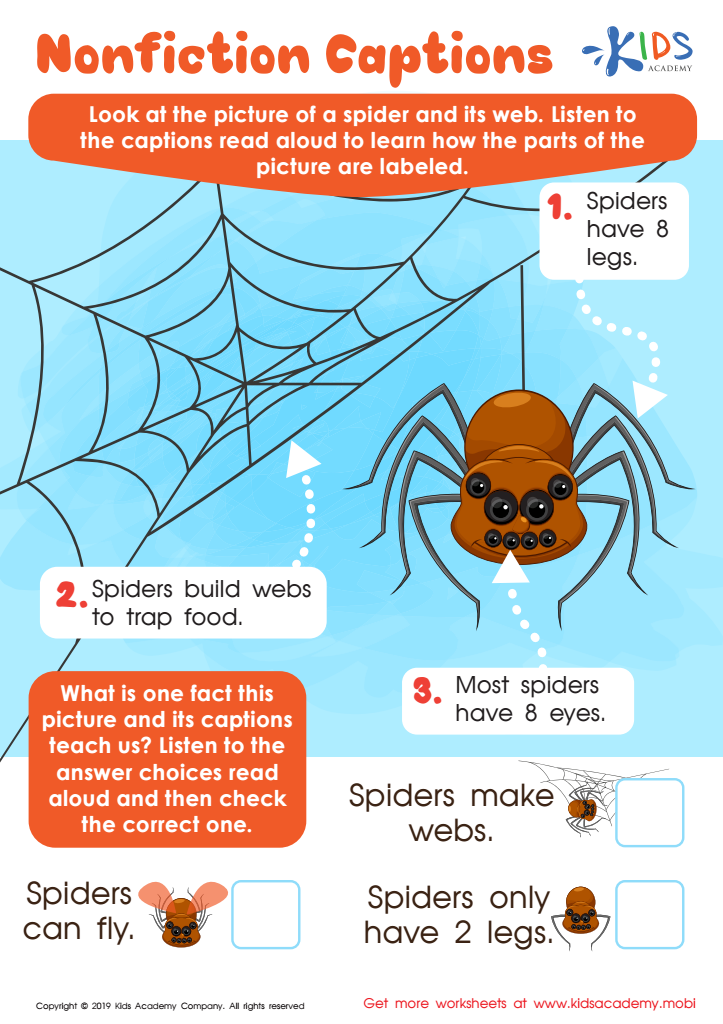

Nonfiction Captions Worksheet
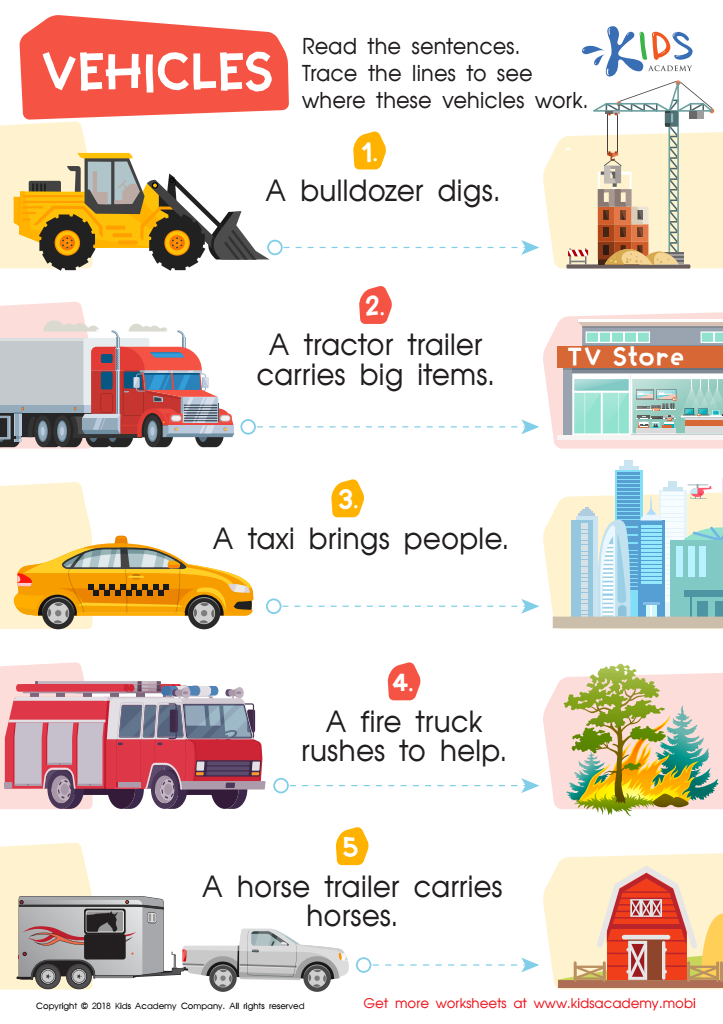

Vehicles Worksheet
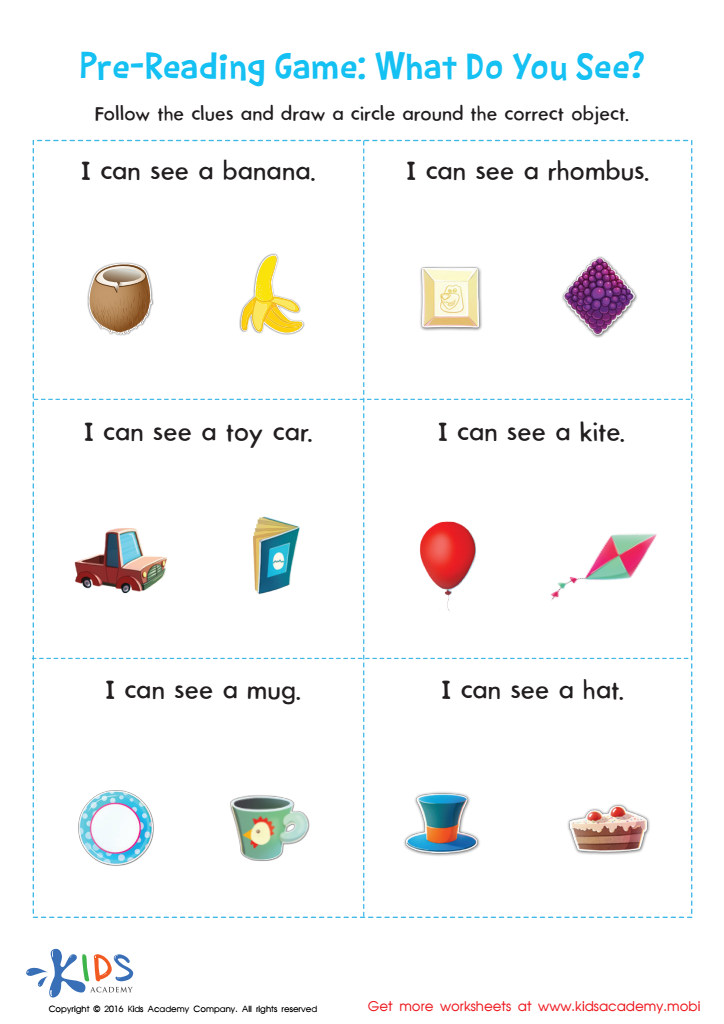

Pre–reading Worksheet: What Do You See?
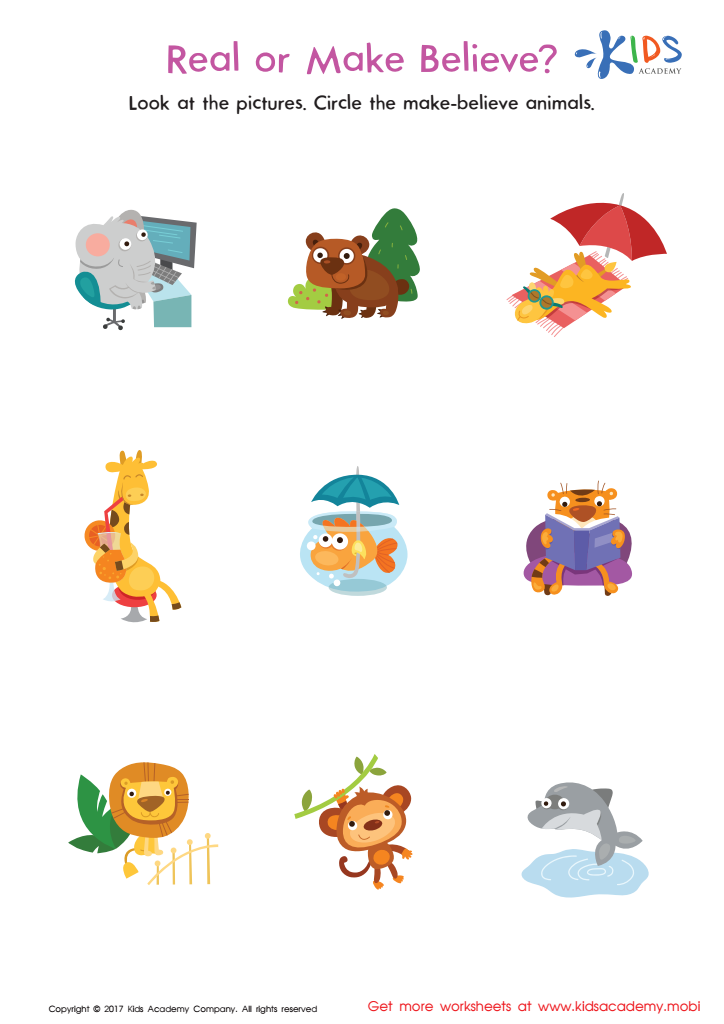

Fact or Make Believe Worksheet
Fostering an early love for reading, especially non-fiction, in children aged 3-6 is crucial, and parents and teachers play a pivotal role in this journey. Non-fiction books broaden a child’s horizon by introducing them to the world around them—be it nature, animals, planets, or even everyday objects and events. This exposure cultivates curiosity and a desire to learn, forming a foundation for lifelong education.
Non-fiction texts enhance vocabulary and language skills. Children encounter a variety of new words and complex sentence structures, fostering language development. These books often introduce children to the concept of narratives based on real events, distinguishing reality from fiction, which is a critical cognitive skill.
Engaging with non-fiction also nurtures critical thinking and observational skills. Children learn to ask questions, seek out facts, and make sense of the information they perceive. By exploring real-world topics tailored to their developmental level, they begin to understand and interpret their environment in meaningful ways.
Parents and teachers should embrace the challenge of incorporating non-fiction into early reading routines to develop a well-rounded, inquisitive, and knowledgeable child. This approach not only supports literacy development but also lays the groundwork for academic success and a lifelong enthusiasm for learning.

 Assign to the classroom
Assign to the classroom






